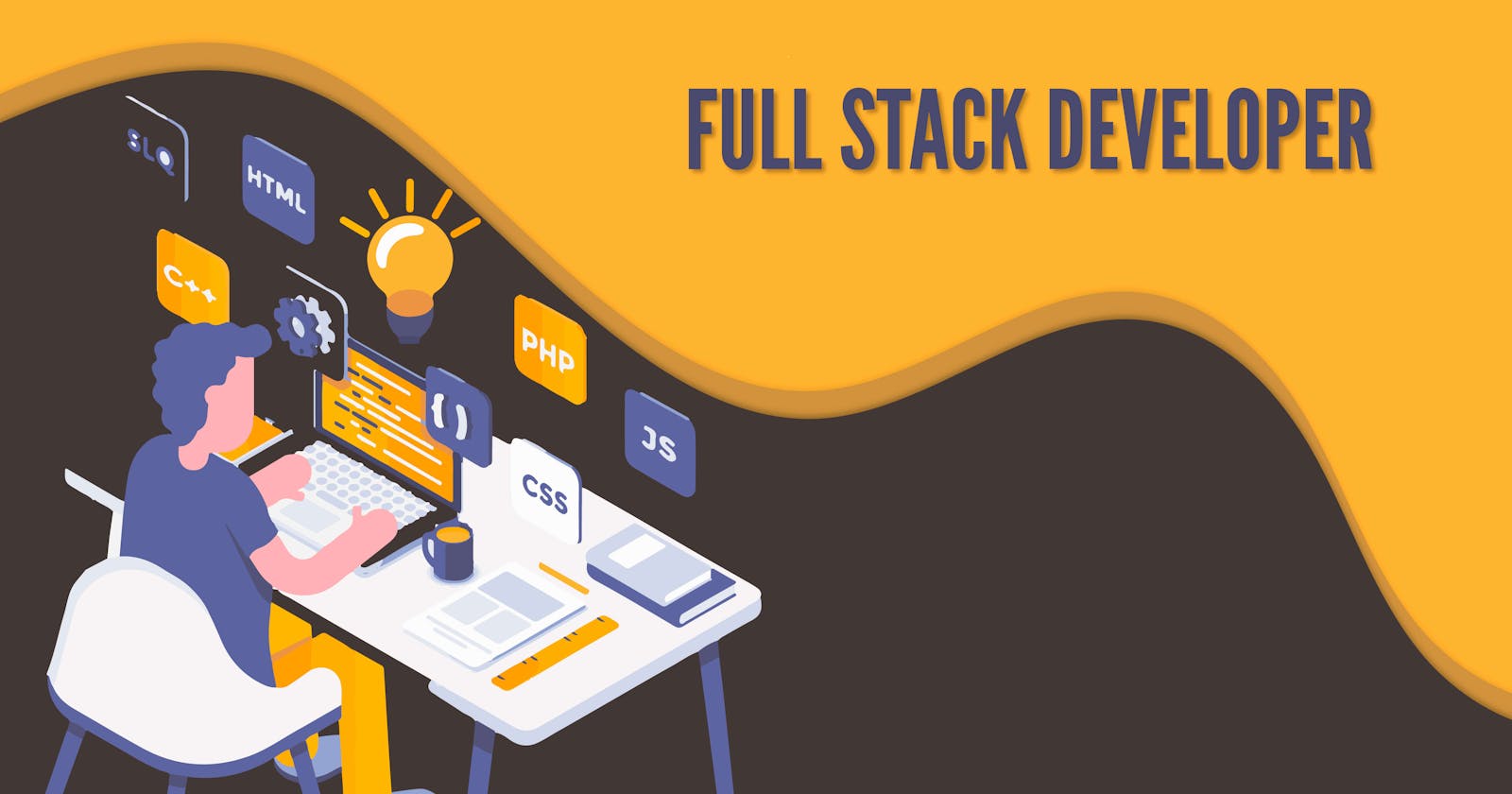Mastering the Art of Web Development: Unveiling the Full Stack Developer's Journey
Table of contents
- Introduction
- Who is a Full Stack Developer?
- The Importance of Full Stack Developers
- The Skill Set Required for a Full Stack Developer
- Becoming a Full Stack Developer
- Roles and Responsibilities of a Full Stack Developer
- Career Path and Opportunities for Full Stack Developers
- Challenges Faced by Full Stack Developers
- Conclusion
Introduction
The world of web development has grown exponentially over the years, creating a demand for skilled professionals who can build, maintain, and enhance websites and applications. Among these professionals, Full Stack Developers are highly sought-after for their ability to work with both the front-end and back-end aspects of web development. In this article, we will explore what a Full Stack Developer is, their skill set, the path to becoming one, and the career opportunities available in the field.
Who is a Full Stack Developer?
A Full Stack Developer is a versatile professional with expertise in both front-end and back-end web development. They are capable of working on all layers of the web development process, from designing user interfaces to building server-side applications and managing databases. This unique skill set allows them to contribute to different aspects of a project, ultimately providing a seamless user experience.
The Importance of Full Stack Developers
Full Stack Developers are essential in today's fast-paced digital world, as they bring a comprehensive understanding of the entire web development process. They can quickly identify and resolve issues, which can save time and resources for a company. Moreover, their ability to work across multiple platforms and technologies makes them valuable team members in collaborative projects.
The Skill Set Required for a Full Stack Developer
Front-end Technologies
Front-end technologies involve creating the user interface and visual elements of a website or application. Full Stack Developers should be proficient in HTML, CSS, and JavaScript, as well as popular frameworks like React, Angular, and Vue.js.
Back-end Technologies
Back-end technologies deal with the server-side logic and data processing. Full Stack Developers need to be skilled in programming languages like Python, Ruby, PHP, or Java, and should also be familiar with server technologies like Node.js, Express, and Django.
Databases
Full Stack Developers must have a solid understanding of databases, both relational (e.g., MySQL, PostgreSQL) and non-relational (e.g., MongoDB, Couchbase). They should be able to design and manage database structures, as well as optimize queries for efficient data retrieval.
Version Control Systems
Version control systems, such as Git, are essential tools for managing code and tracking changes. Full Stack Developers need to be proficient in using version control systems to collaborate with other developers and maintain clean, well-organized codebases.
APIs
APIs (Application Programming Interfaces) enable communication between different software components. Full Stack Developers should understand the principles of RESTful API design and be comfortable working with third-party APIs to integrate various services into their projects.
Becoming a Full Stack Developer
Educational Background
Although a formal degree in Computer Science or a related field is beneficial, many successful Full Stack Developers have pursued alternative educational paths. A strong foundation in programming, data structures and algorithms is essential, but this knowledge can be acquired through self-study or an online Full Stack Developer Course.
Self-Learning
Self-learning is a crucial aspect of becoming a Full Stack Developer, as the field is constantly evolving. Developers must stay up-to-date with the latest technologies, tools, and best practices. Online resources, such as tutorials, blogs, and forums, can be invaluable for learning new skills and staying informed about industry trends.
Online Courses and Bootcamps
Online courses and bootcamps have emerged as popular alternatives to traditional education for aspiring Full Stack Developers. These programs offer a structured curriculum, hands-on projects, and guidance from experienced professionals. Many online courses and bootcamps also provide job placement assistance upon completion, making them an attractive option for those looking to enter the field.
Roles and Responsibilities of a Full Stack Developer
Full Stack Developers are responsible for a wide range of tasks, including:
Designing and implementing user interfaces using front-end technologies.
Developing server-side applications and APIs using back-end technologies.
Managing databases and optimizing data storage and retrieval.
Collaborating with other developers, designers, and stakeholders to ensure a cohesive and efficient development process.
Debugging and troubleshooting issues across the full stack of a web application.
Maintaining and improving code quality through version control systems, code reviews, and adherence to best practices.
Continuously learning and adapting to new technologies and tools.
Career Path and Opportunities for Full Stack Developers
Full Stack Developers have numerous career opportunities, as their skills are in high demand across various industries. They can work as freelancers, join startups, or find positions in established companies. Potential job titles include:
Full Stack Developer
Full Stack Engineer
Web Developer
Software Developer
Application Developer
With experience and additional skills, Full Stack Developers can progress to senior roles, such as Lead Developer, Architect, or even Chief Technology Officer (CTO).
Challenges Faced by Full Stack Developers
Full Stack Developers may encounter several challenges, including:
Staying up-to-date with the ever-evolving web development landscape.
Balancing the demands of both front-end and back-end development.
Managing time and resources efficiently when working on multiple projects simultaneously.
Communicating effectively with team members and stakeholders to ensure a smooth development process.
Conclusion
Full Stack Developers are valuable assets in the world of web development, as they possess a unique skill set that spans the entire development process. By staying current with industry trends and continuously honing their skills, these professionals can enjoy a rewarding and diverse career in an exciting and rapidly evolving field.
